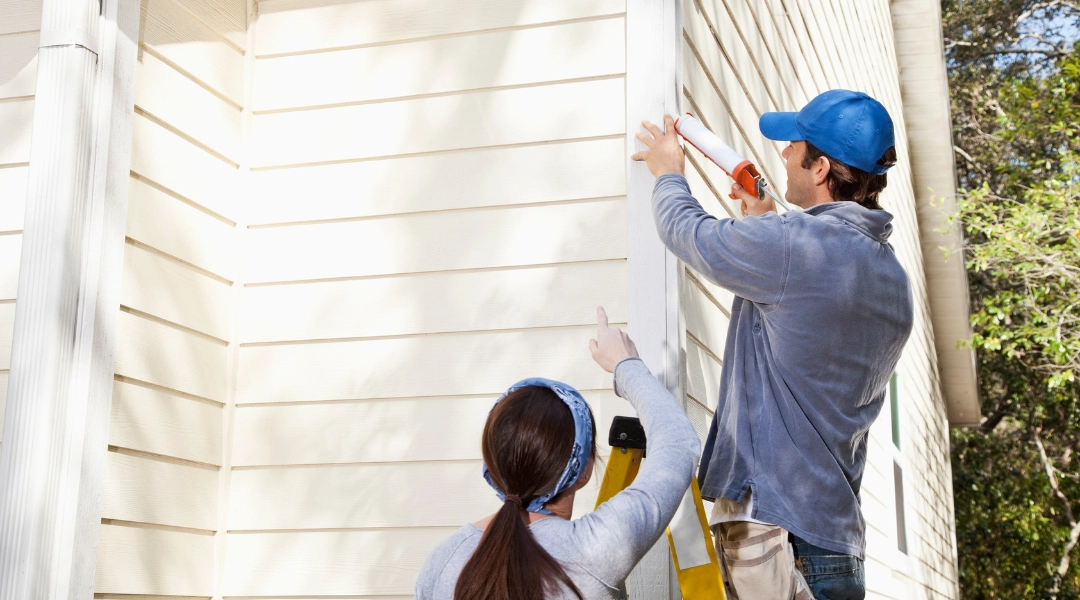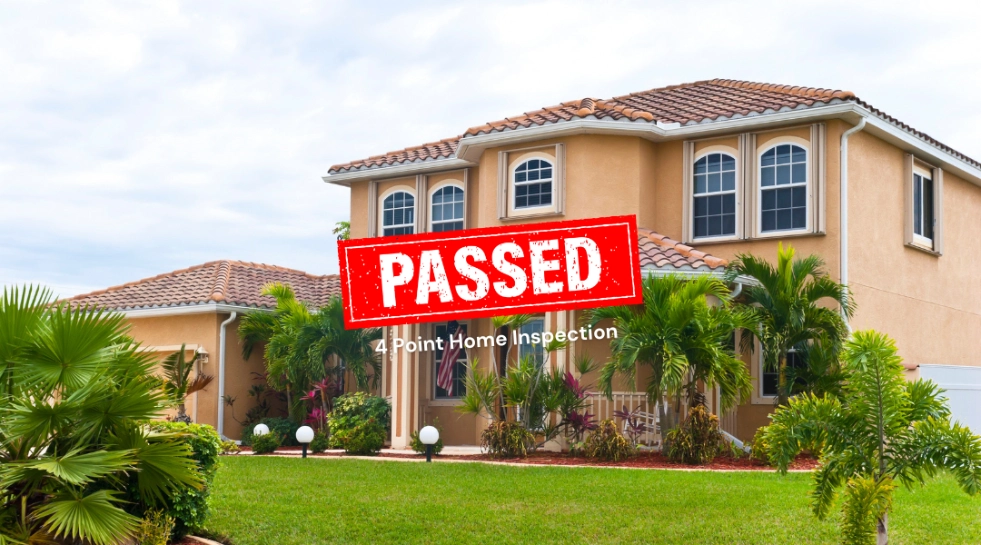Understanding 4-Point Home Inspection
A 4 Point Home Inspection is a crucial assessment that every homeowner may encounter at some point. In this, a licensed inspector will do a comprehensive evaluation of four key systems in your home, including the roof, electrical, plumbing, and HVAC (Heating, Ventilation, and Air Conditioning) systems. This inspection is typically required by insurance companies before they issue or renew insurance policies for older homes.
Its main goal is to evaluate these crucial systems because they are frequently the most vulnerable and expensive to fix or replace. Before insuring a property, insurance firms can determine the level of risk they are taking on by detecting potential issues.
Now, let’s delve deeper into why passing a 4-Point Inspection is crucial and how homeowners can ensure they are well-prepared.
Why Do You Need to Pass a 4 Point Home Inspection?
- Passing a 4 Point home inspection is crucial for insurance approval, especially for older homes. Insurance companies assess the condition of vital systems to ensure minimal risk and good working conditions.
- A thorough inspection ensures the safety of your roof, electrical, plumbing, and HVAC systems, lowering the possibility of accidents or property damage.
- Homeowners who pass the inspection may secure better insurance rates and avoid costly repairs that could be uncovered during the process.
- Knowing that your home’s critical systems are in good working order gives you peace of mind, allowing you to focus on other aspects of homeownership without worry.
Tips for How to Pass a 4-Point Home Inspection

1. Roof Inspection
- Check for any visible damage, such as missing shingles, leaks, or sagging areas.
- Clear debris and ensure proper drainage from gutters and downspouts.
- Verify that the roof’s age and condition are within acceptable limits for insurance requirements.
2. Electrical System Inspection
- Ensure all electrical outlets, switches, and appliances are properly working.
- Replace any damaged or exposed wiring.
- Have a licensed electrician conduct a thorough inspection for potential hazards.
3. Plumbing Inspection
- Fix any leaky faucets, pipes, or toilets.
- Verify that the water heater is functioning efficiently.
- Check for signs of water damage or mold, as these could indicate plumbing issues.
4. HVAC System Inspection
- Change air filters regularly and ensure proper ventilation.
- Have a professional HVAC technician perform regular maintenance to ensure optimal performance.
- Consider upgrading to a more energy-efficient system if yours is outdated.
What Fails a Four Point Inspection?
A 4-Point Home Inspection can fail due to various issues, including:
- Roofing issues such as severe damage or excessive wear.
- Outdated or unsafe electrical wiring.
- Plumbing problems like leaks or deteriorating pipes.
- HVAC systems that are inefficient, poorly maintained, or beyond their useful life.
- Water leaks can be an indication of underlying plumbing problems. Address any leaks as soon as possible and check for signs of water damage or mold.
- If the house has significant structural issues, such as a sagging roof or a compromised foundation, it may be considered unsafe for insurance coverage.
- Unpermitted or poorly executed DIY modifications to the home’s systems may be flagged during the inspection.
- Homes built before 1978 may contain lead paint, which poses health risks, particularly to young children—remediate any lead paint hazards prior to the inspection.
How to Prepare for a 4-Point Home Inspection
- Compile all relevant paperwork related to the home’s maintenance, repairs, and upgrades for the inspector’s review.
- Address Visible Issues- To improve your chances of passing the inspection, fix any obvious problems that you can identify before the inspection.
- Schedule professional inspections- Have licensed professionals assess the roof, electrical, plumbing, and HVAC systems individually to identify and address potential issues.
- Keep detailed records of maintenance and repairs for each system to demonstrate proactive maintenance.
Conclusion
Passing a 4 Point home inspection is required for homeowners to secure insurance coverage, ensure safety, and save money on potential repair costs. By following the tips in this guide and adequately preparing your home, you can increase the likelihood of a successful inspection.
Remember to address any visible issues as soon as possible, maintain regular maintenance, and seek professional assistance as needed to keep your home’s vital systems in good working order. Being proactive in your approach will not only help you pass the inspection, but it will also give you peace of mind that your home is safe and well-maintained.
Frequently Asked Questions
What will fail a 4-point inspection in Florida?
A 4 point inspection in Florida can fail due to various reasons, such as severe roof damage, outdated or unsafe electrical wiring, plumbing leaks or issues, and inefficient HVAC systems. Structural problems like a sagging roof or compromised foundation, as well as the presence of lead paint or asbestos, can also result in a failed inspection. Addressing these issues promptly is crucial to improve the chances of passing the inspection and securing insurance coverage.
What if I find problems during the 4 Point Inspection?
If you find problems during the four point inspection, don’t panic. Address them promptly by hiring licensed home inspectors for necessary repairs or replacements. Taking proactive action will increase the chances of passing the inspection and securing insurance coverage at reasonable rates. Seek guidance from experienced professionals for a smooth process and peace of mind.




